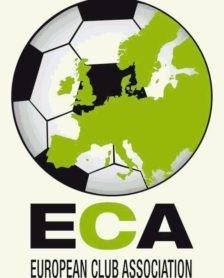The European Court of Justice (ECJ) has delivered a significant verdict, challenging UEFA and FIFA for overstepping their bounds by prohibiting clubs from joining the European Super League (ESL). The case, brought by ESL and its supporters, accused UEFA and FIFA of breaching competition laws by threatening sanctions against those participating in the breakaway league. The ECJ found in favor of the ESL, stating that while this ruling doesn’t automatically approve a breakaway league, it questions the dominance and arbitrary nature of FIFA and UEFA’s powers.
Challenge to FIFA and UEFA’s Dominance
The verdict marks a pivotal moment for European football, dealing a blow to the traditional authority of FIFA and UEFA in how they administer the sport. While UEFA expressed confidence in its regulations and compliance with European laws, clubs like Barcelona, initially part of the ESL, see this as an opportunity for a new competitive landscape. ESL backers, A22, revealed revised proposals, expanding to include a women’s European tournament. The plan encompasses a structured league system for both men and women, promoting inclusivity and competitive dynamics.
Evolution of the ESL Concept
Initially designed as a midweek competition involving a limited number of clubs, the ESL concept faced backlash due to its closed nature, barring many clubs from participation and undermining the essence of football’s competitive spirit. Fans and critics alike denounced the ESL, emphasizing its detrimental impact on existing leagues across Europe, viewing it as a profit-driven move with little regard for supporters.
Implications and Future Path
The ruling underscores the necessity for transparency, objectivity, and non-discrimination when new competitions enter the market. FIFA and UEFA’s unchecked powers, deemed arbitrary by the ECJ, highlight the need for fair and justified regulations. However, the judgment refrains from specifically endorsing the Super League project, leaving its fate open.
Reactions and Continued Interest
While some clubs faced fines from UEFA and others withdrew from the ESL project amid public outcry, Real Madrid and Barcelona remain interested in pursuing this venture. Real Madrid hailed the decision, asserting that clubs should control their destiny. Meanwhile, La Liga criticized the closed format, emphasizing the importance of open access through domestic leagues for a truly inclusive footballing experience.
This verdict from the ECJ marks a pivotal moment in football governance, raising pertinent questions about the powers vested in FIFA and UEFA, ultimately reshaping the landscape of European football competitions.
European Clubs and Leagues Stand Firm Against Super League
The European football landscape witnessed a resolute rejection of the proposed Super League, as major clubs and leagues unified in their stance against the breakaway competition. While the Super League organisers welcomed the ECJ’s ruling, several prominent entities swiftly reaffirmed their commitment to the existing structure overseen by UEFA.
Reaffirmation of Commitment to UEFA Competitions
Manchester United, along with Bayern Munich, took a vocal stance, asserting their unwavering dedication to participating in UEFA-run tournaments. In a statement, United reiterated their unchanged position, emphasizing their full commitment to UEFA competitions and collaborative engagement with fellow clubs and leagues. This sentiment echoed among other Premier League giants, including Manchester City, Liverpool, Arsenal, Chelsea, and Tottenham Hotspur, who initially joined the Super League venture but later withdrew.
Bayern Munich echoed similar sentiments, declaring their continued allegiance to UEFA competitions, firmly shutting the door on any potential involvement in the Super League. Bayern’s CEO, Jan Christian Dreesen, highlighted the Bundesliga’s foundational significance for the club and expressed their duty to fortify national leagues, aligning with the broader spirit of European football solidarity.
Collective Rejection and Emphasis on Football’s Social Fabric
The unified rejection found resonance in the European Club Association (ECA), representing a vast array of clubs continent-wide. ECA underscored that the football landscape had moved beyond the Super League concept years ago. They emphasized the current integral role of clubs in decision-making concerning their participation in competitions, accentuating football’s essence as a social contract rather than merely a legal one.
Further strengthening this collective stance, France’s Ligue de Football Professionnel (LFP) reiterated its unequivocal support for UEFA-organized competitions. Similarly, the Italian Football Federation (FIGC) reasserted its commitment to preserving national championships, stressing the importance of sporting merit and international calendar adherence. The FIGC firmly stated that the Super League concept contradicted these fundamental principles and pledged to safeguard the broader interests of Italian football.
The unwavering stance taken by these leagues and clubs not only underscores their allegiance to UEFA competitions but also reiterates their commitment to preserving the essence and integrity of football, emphasizing solidarity, and the inclusive nature of the sport.
Table of Contents
Discover more from OGM News NG
Subscribe to get the latest posts sent to your email.














